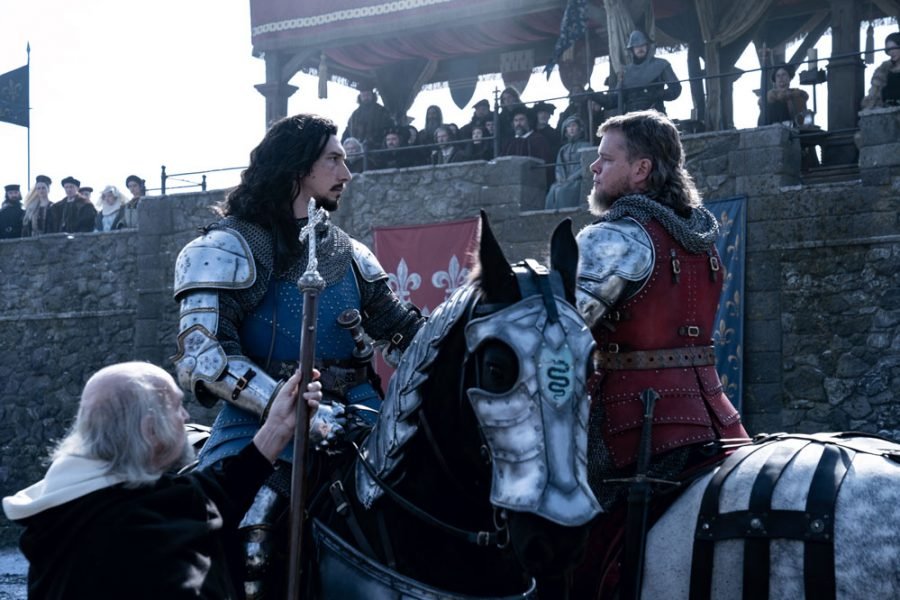THIS WEEK IN MOVIES: The Last Duel
By Jorge Ignacio Castillo
Even though his name commands respect in most circles, Ridley Scott is not an easy guy to trust. For every The Martian (a perfect popcorn movie) there is a pretentious award-chasing flick, most recently All the Money in the World; for every masterpiece (Alien, Blade Runner), a bloated mess (Kingdom of Heaven, Exodus: Gods and Kings). One thing is undeniable: His craftsmanship is always aces.
The 84-year-old Brit is as active as ever: this year alone he has two movies on deck, both studio films with decent budgets and Academy Awards ambitions. The first one, The Last Duel, was written by Matt Damon and Ben Affleck (alongside Nicole Holofcener) in their first script since winning an Oscar for Best Original Screenplay 23 years ago for Good Will Hunting. Ridley’s other film, House of Gucci (a sudsy drama starring Lady Gaga) is expected for the end of the year.
Based on actual events—the last officially recognized judicial duel fought in France—the incident doubles as proto #metoo: At the very end of the 14th century, knight Jean de Carrouges (Matt Damon) accused squire Jacques Le Gris (Adam Driver) of raping his wife (Jodie Comer, Killing Eve). There were no witnesses—it was her word against his—and at the time, a woman’s testimony only meant something if there was a husband with property to back her up.
Scott tells the story Rashomon-style. First we are introduced to Jean de Carrouges, a chip-on-the-shoulder kind of guy. He and Jacques Le Gris start as brothers-in-arms, but the relationship deteriorates because of perceived slights. Later we witness the same events from Le Gris’ perspective: Carrouges comes across as callous and moody, while Le Gris sees himself as a fair man who happens to be irresistible to women. The third POV, Carrouges’ wife’s, is the closest to the truth. Without going into spoilers, I’ll just say the two men have inflated opinions of themselves.
Ridley Scott avoids being repetitive by unveiling information strategically. He’s so good at it, the film is at its best when setting up the action. However, when focusing on the subjects that make The Last Duel current, the film becomes clumsy and broad. The script shoves in lines destined to make you think “things haven’t change all that much, have they?”
The movie picks up again towards the end for the actual duel. Scott, who knows a thing or two about gritty and gnarly violence (see Brad Pitt’s gory death in The Counselor). Impeccably planned, the fight to the death is brutal, with both parties on top at different stages (avoid Wikipedia if you don’t want to know the result).
The unexpected MVP of The Last Duel is Ben Affleck, the actor, not the scriptwriter. As nobleman Pierre d’Alencon (he was originally slated to play Le Gris), Affleck approaches the role as a man who doesn’t believe in divine right, but is happy to exploit it, as well as every advantage that comes from being born a lord in the Middle Ages.
While well intentioned and entertaining throughout, The Last Duel would have benefited from less moralizing. The point would have come across and more effectively without having to spell it out for the general public. Sometimes they need it, but not here. 3.5/5 stars
The Last Duel is now playing.

